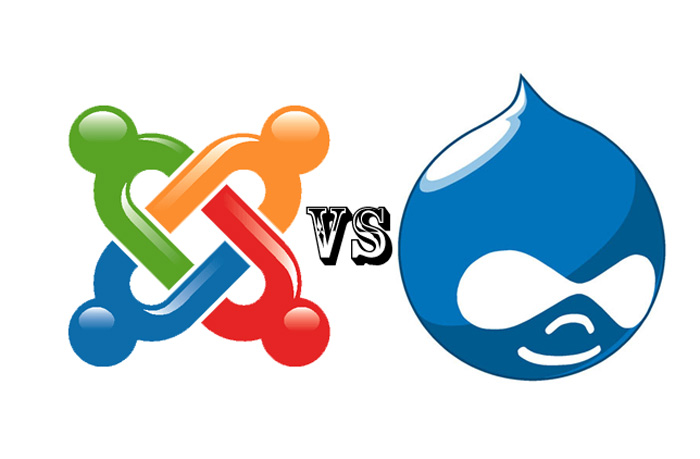Drupal vs Joomla: In Search of the Best CMS
Drupal and Joomla web hosting in Uganda
While WordPress powers a whopping 24% of all websites on the Internet, it’s certainly not the only open source content management system (CMS) available. In fact, there are two highly effective software platforms, Joomla and Drupal, that warrant great attention when considering a CMS for your website.
With Joomla raking in over nearly 50 million downloads and Drupal housing more than 1,000,000 elite websites, these powerhouses are worth investing the time to see which platform will best serve your business and site goals.
Although each CMS provides the basic functions of adding, deleting, publishing, and storing various types of content, each tool has different strong points and weaknesses which should be explored prior to making your final decision. The purpose here is to provide a comprehensive overview of Drupal vs Joomla to give you clarity for your next (or current) business website.
Joomla
Joomla is becoming an increasingly popular content management system. Actually, after WordPress, it’s considered the world’s most accepted CMS, currently supporting over 3 million websites. Joomla has the power of being extended to provide state of the art functionalities. It has been presented with the Packt Open Source Awards multiple years in a row, making it highly credible to be used as a CMS for your web application.
When it comes to complexity, Joomla places somewhere between simple WordPress and comprehensive and advanced Drupal. Using Joomla means that there may be a slight learning curve particularly for beginners, yet webmasters are usually very happy with the features it incorporates.
There are many advantages including better architecture as compared to other content management systems.
The Advantages:
- Simple to install
- Knowledge of CSS, PHP, or HTML is not required
- Manage users with various permission levels without switching tabs
- E-commerce made easy
- Several thousands of free extensions available for increased functionality and interaction for your site
- Amazing support with programmer tools and tutorials for users
- Advanced administration panel offers many functions for complete optimization
- URLs generated are SEO friendly thus better positioning in search
- Update installs are easily done through web browser
- Application framework makes it effortless for developers to create sophisticated add-ons
- Highly strong and active community support
The Disadvantages:
- Although simple to use, beginners may initially be intimidated by the multitude of functions and possibilities…there is some learning involved
- Some of the plugins and modules are paid
- Limited adjustment options particularly for advanced users
- May experience compatibility issues with some of the plugins, requiring some PHP knowledge to get the functions to work properly
- Limited access control list (ACL) support
The Challenge:
The structure may seem complicated and you may have to go through a learning curve before you master the layout system.
Brands that Use Joomla:
- IKEA
- Greek Ministry of Education, Research and Religious Affairs
- IHOP
- Harvard University Graduate School of Arts and Sciences
- University of Notre Dame – Alliance for Catholic Education
If you have some experience with CMS systems and you’re looking for something more than WordPress, but you’re still intimidated by Drupal, Joomla might be a solid option.
Drupal
Currently over 1 million websites run on Drupal, widely known to service entities like governments, higher education institutions, NGO’s, and global enterprises. This CMS proudly services The White House and prides itself on its top-notch security element. Its incredibly powerful and comprehensive framework is suitable to house virtually any type of website.
The beauty about Drupal is that it was designed especially for search engine optimization. Placing high value in security, reliability, and flexibility, this CMS is indeed the cream of the crop. Its large robust community is also highly responsive to inquiries and concerns.
This CMS is definitely for the advanced with developer expertise…it is not for all users like Joomla. Installing Drupal for your next project will require an experienced web developer on staff (or a contracted one). Using Drupal is indeed a great choice with the ability to create amazing looking sites.
Here are the advantages, the disadvantages as well as the challenges users may experience with Drupal:
The Advantages:
- Top notch enterprise-level security
- Great ability to handle large amounts of content and data
- Lots of functionalities including advanced menu management, polls management, graphics modification tool, and users management
- Built for high performance
- Advanced control over URL structure
- Pages load faster because of its defaulting caching features
- Features countless modules, themes, and extensions
- Ideal for community platform sites that require complex data organization with multiple users
- Supports multiple site stakeholders (admin, editors, logged in users requiring customized content, private groups, etc.)
- Very clean, professional look
- Flexible with lots of versatility
- Stable and scalable
- Downright powerful platform!
The Disadvantages:
- Upgrades need to be completed with developer knowledge
- Not user friendly
- High learning curve
- Requires technical expertise
- Hiring a web developer to install is more expensive than a Joomla installation
- Premium themes and plugins (modules) cost a lot more than WordPress
The Challenge:
It is very difficult to install…you will likely need an expert.
Brands that Use Drupal:
- The White House
- University of Oxford
- The Weather Channel
- Bruno Mars
- Verizon
- The Economist
- Fox
- Forbes
- New England Patriots
- NBC
- Rutgers University
- Australian Government
Drupal is an advanced CMS system offering plenty of functions that make it possible to create simple or advanced websites, blogs, discussion boards, social networking pages, etc. However, it does require experienced knowledge of PHP and HTML languages as well as CSS. For those with at least basic knowledge of these languages, there’s a very good technical support to guide them through the process.
How to Choose the BEST CMS for Your Business
Being clear on your business goals, objectives, and intentions is the first step towards selecting a CMS that is optimal for your business. This clarity will guide you as to what type of website is congruent to your needs while better serving your unique target audience.
Joomla is also a good option for small to mid-tier e-commerce stores or for building a community or a network with a membership features, newsroom, forums, articles, input from external authors. If you want something more powerful for large projects in which stability, scalability, and power are essential, or for more enterprise use, then consider Drupal.
Choosing the right CMS for your project will save you a great deal of headaches later. A reliable web host also saves you from headaches. Fortunately, with Hostaculous you can get both reliable hosting and the CMS of your choice, be it Joomla, Drupal, WordPress, or Magento.
Drupal and Joomla web hosting in uganda,Drupal and Joomla web hosting in uganda,Drupal and Joomla web hosting in uganda,Drupal and Joomla web hosting in uganda,Drupal and Joomla web hosting in uganda,Drupal and Joomla web hosting in uganda,Drupal and Joomla web hosting in uganda,Drupal and Joomla web hosting in uganda,Drupal and Joomla web hosting in uganda,Drupal and Joomla web hosting in uganda,Drupal and Joomla web hosting in uganda,Drupal and Joomla web hosting in uganda,Drupal and Joomla web hosting in uganda,Drupal and Joomla web hosting in uganda![]()
![]()












